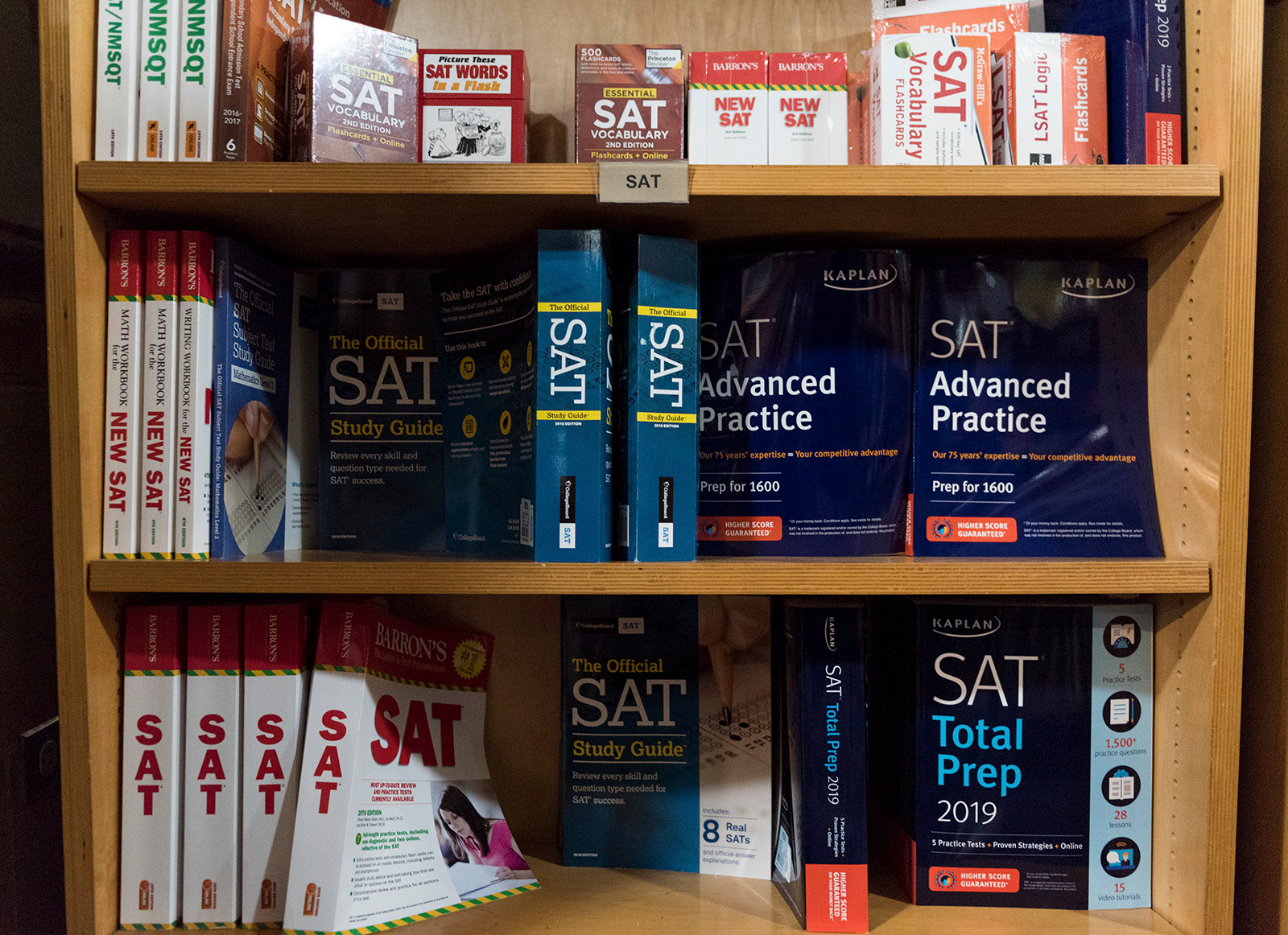UC faces potential lawsuit for its use of standardized tests in admission process

Lawyers representing three students and several organizations, including the Compton Unified School District, said they intend to sue the University of California unless they remove the SAT and ACT from their admissions process. (Liz Ketcham/Photo editor)

By Julia Shapero
Nov. 1, 2019 12:19 a.m.
This post was updated Nov. 3 at 6:41 p.m.
A number of organizations and students said they intend to sue the University of California unless it discontinues its use of standardized testing in its admissions process.
Lawyers representing three students and several organizations, including the Compton Unified School District, sent a letter to the UC Regents on Tuesday demanding they remove the requirement that prospective students take the SAT or ACT.
The letter argues that as a public institution of higher education, the UC must provide students equal access. The letter argues that standardized testing poses unlawful barriers to minority students, violating the Constitution of the State of California and other state laws.
The letter claims the use of standardized testing, such as the SAT and ACT, in the UC admissions process discriminates against underrepresented minority students, multilingual students and students with disabilities.
SAT and ACT scores do not provide accurate information about a student’s success in college, especially once socioeconomic status or race are taken into account, the letter stated.
The way the exams are written also discriminates against some students, according to the letter. The SAT and ACT exclude questions that minority students typically perform well on and include word-heavy questions that discriminate against multilingual students, the letter added. The letter did not specify what types of questions minority students typically perform better on.
Additionally, the letter argues it is difficult for students with disabilities to obtain accommodations for the exams. It also stated the tests discriminate against certain students since not all students have equal access to test preparation materials or classes.
According to the letter, UC admissions officers have sufficient information to make admissions decisions without the use of standardized test scores, citing examples of universities that no longer require SAT or ACT scores, such as The University of Chicago and Bowdoin College.
Beyond the Score, a student organization that aims to raise awareness about the drawbacks of standardized testing, held a town hall on campus in February to advocate for the removal of standardized testing from the admissions process.
The College Board attempted to address issues surrounding the SAT with the introduction of the Environmental Context Dashboard in May. The ECD, which was referred to as the “adversity score” by media outlets, sought to generate a score that would provide context about students’ socioeconomic and academic backgrounds in addition to their SAT scores.
However, the organization decided not to implement the ECD in August and instead announced it would implement a new tool called Landscape, following criticism of the “adversity score.” Landscape would instead provide colleges with data about students’ high schools, neighborhoods, SAT scores and AP test participation rates and scores.
UCLA spokesperson Ricardo Vazquez said in September that the change from the “adversity score” to Landscape would not impact UCLA’s admission policies.
The UC did not have a response to the letter at the time, said UC spokesperson Claire Doan in an emailed statement. However, the UC is currently performing an assessment of standardized testing, Doan added.
The UC Academic Senate established a task force to determine whether standardized tests are useful for measuring academic performance after UC President Janet Napolitano asked the senate to conduct a formal review in July 2018, Doan said.
The UC is now waiting for the recommendations from the task force before making further decisions. Doan said the UC expects the recommendations within the 2019-2020 academic year.
The ACT does not believe their test is discriminatory or biased, said ACT senior director of media relations Ed Colby in an emailed statement.
“We work diligently to make sure the test questions are not biased against any group of students and are fair to all who take the test,” Colby said.
Colby said research has shown ACT scores are predictive of and related to important educational outcomes in college. He added the ACT believes standardized tests are not to blame in this case.
“(The) ACT test results reflect inequities in access and quality of education, shining a light on where they exist,” he said. “Blaming standardized tests for differences in educational quality and opportunities that exist will not improve educational outcomes.”
He said the ACT devotes many resources to address existing inequalities and makes sure all students have equal access, by providing fee waivers for low income students, preparation products for all students, accommodations for students with disabilities and test supports for students who are English learners.
Zachary Goldberg, a spokesperson for the College Board, which administers the SAT, said in an email statement the College Board believes the SAT is not discriminatory and is working to reduce inequality in education.
“Any objective measure of student achievement will shine a light on inequalities in our education system,” Goldberg stated. “Our focus, with our members and partners, is combating these longstanding inequalities.”
A new version of the SAT was introduced in 2016 and aims to measure concepts that are more essential for college and career readiness, he said.
“All vestiges of the aptitude approach used to develop the early SAT 100 years ago have been eliminated,” Goldberg stated. “Gone are the infamous ‘SAT words,’ penalties for guessing, and math that isn’t necessary for college work.”
Goldberg added that over 140 school districts and county offices of education in California support the use of the new SAT in order to improve college readiness and reduce barriers to college.
The College Board will continue to work with the UC to address the challenges they encounter when admitting students from a pool of many qualified applicants, he said.
“Regrettably, this letter contains a number of false assertions and is counterproductive to the fact-based, data-driven discussion that students, parents and educators deserve,” Goldberg said.
Goldberg added the College Board’s 2019 Validity of the SAT for Predicting First-Year Grades and Retention to the Second Year study showed that SAT scores are strongly predictive of college performance. The study is based on data from over 223,000 students at 171 four-year colleges.
The lawyers representing the students demanded the regents place consideration of the letter on the agenda for their next meeting in November and respond within 10 days to avoid further litigation.

